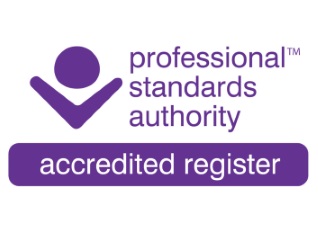Counselling
Person-Centred Counselling
PCT is a humanistic approach that deals with the ways in which individuals perceive themselves.
I aim to offer a non-judgemental and honest approach as you explore your past and current experiences. It is within this environment that you are supported to develop emotionally and process issues that may be affecting you.
As a Person-Centred counsellor, I endeavour to fully understand your individual experiences, to help you to learn about, and reflect on, your inner values and sense of self-worth, and, in turn, develop your own sense of identity and be in the world confident and happy with who you are.
Mindfulness: What is mindfulness and how can mindfulness help me?
Mindfulness is a mental state achieved by focusing your awareness on the present moment, while calmly acknowledging and accepting feelings, thoughts, and bodily sensations. By being fully present in this way – not forcing things or hiding from them, but actually being with them, we create space to respond in new ways to situations and make wise choices. We may not always have full control over our lives, but with mindfulness we can work with our minds and bodies, learning how to live with more appreciation and less anxiety.
Making mindfulness a frequent aspect of daily life requires training and a lot of practice. If you’re motivated, a fresh perspective can begin to emerge and extend to the whole of your life – when we start practising mindfulness, we’re embarking on a journey that helps us live life more fully, to really be alive.
Mindfulness practices have Buddhist origins and have been around for thousands of years. More recently they have been formalised into therapies which mean you don’t need to be religious or spiritual to learn to practise mindfulness and enjoy the benefits. For decades now, scientific research has been showing how useful these therapies are for reducing stress, anxiety and depression, helping people manage a wide range of physical conditions, and for our general well being. So mindfulness isn’t only useful if you’re feeling stressed or have a mental health problem – it can help any of us enjoy a more wakeful, healthier, happier life.
Anyone can learn and practise mindfulness; children, young people and adults can all benefit. It’s simple, you can practise it anywhere and the results can be life-changing.
Cognitive behavioural therapy (CBT): How CBT works
CBT is based on the concept that your thoughts, feelings, physical sensations and actions are interconnected, and that negative thoughts and feelings can trap you in a vicious cycle.
CBT aims to help you deal with overwhelming problems in a more positive way by breaking them down into smaller parts. You’re shown how to change these negative patterns to improve the way you feel.
Unlike some other talking treatments, CBT deals with your current problems, rather than focusing on issues from your past. It looks for practical ways to improve your state of mind on a daily basis.
Uses for CBT
CBT has been shown to be an effective way of treating a number of different mental health conditions.
In addition to depression or anxiety disorders, CBT can also help people with, obsessive compulsive disorder (OCD), panic disorder, post traumatic stress disorder (PTSD), phobias, eating disorders, sleep problems and problems related to alcohol misuse.
CBT is also sometimes used to treat people with long-term health conditions, such as irritable bowel syndrome and chronic fatigue syndrome.
Although CBT can’t cure the physical symptoms of these conditions, it can help people cope better with their symptoms.
What happens during CBT sessions?
During the sessions, you’ll work with your therapist to break down your problems into their separate parts – such as your thoughts, physical feelings and actions.
You and your therapist will analyse these areas to work out if they’re unrealistic or unhelpful and to determine the effect they have on each other and on you. Your therapist will then be able to help you work out how to change unhelpful thoughts and behaviours.
After working out what you can change, your therapist will ask you to practise these changes in your daily life and you’ll discuss how you got on during the next session.
The eventual aim of therapy is to teach you to apply the skills you’ve learnt during treatment to your daily life.
This should help you manage your problems and stop them having a negative impact on your life – even after your course of treatment finishes.

